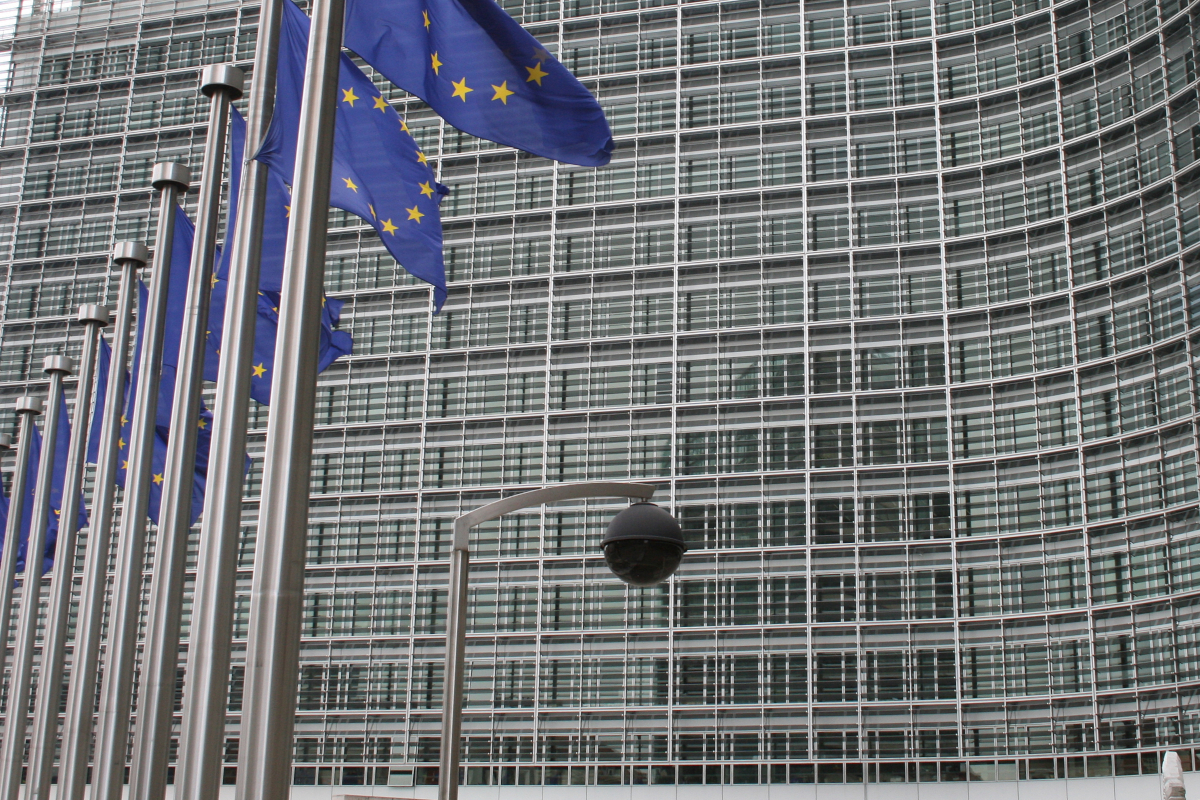News
Launched in 1999 and updated regularly, Statewatch News includes our own reporting and writing as well as articles, announcements, documents and analyses from elsewhere on civil liberties, EU policies and state practices. You can receive updates in your inbox by signing up to our mailing list, or use our RSS feed to get instant alerts.

The fatal policies of Fortress Europe: nearly 50,000 documented deaths since 1993
The anti-racist group UNITED has documented 48,647 refugee and migrants deaths since 1993, detailed in an updated version of its list of deaths that is being published to coincide with World Refugee Day, 20 June.

Ireland increases payment to Frontex by tens of thousands of euros to boost deportations
Ireland's participation in Frontex activities is governed by agreements that are renewed annually. A Frontex management board decision from March outlines Ireland’s participation in operations and activities for 2022. The payment to Frontex from Ireland is significantly larger than in previous years, particularly in the realm of returns.

Death at the French-Italian border raises multiple concerns, says new report
Border Forensics, a new organisation conducting investigations into violence at borders, presented its first investigation on 30 May. It examines the death of Blessing Matthew, who was found on 9 May 2018 on the shore of La Durance river in the French Alps, caught in the lock at Prelles in the locality of Saint-Martin-de-Queurièr near Briançon.

EU: Artificial Intelligence Act: consolidated version of the Presidency's compromise text
On 15 June the French Presidency of the Council circulated a consolidated compromise text of the proposed Artificial Intelligence Act, which aims to establish a legal framework for the development and deployment of "trustworthy" AI in the EU.

EU: Further support for Ukrainian refugees and wounded soldiers up for discussion at Council meeting tomorrow
The efforts going into providing supporting for Ukrainians fleeing the Russian invasion are, of course, utterly vital - but very telling with regard to the double standards for refugees from different parts of the world.

EU: Rule of law: nothing to see here, Hungarian government tells the Council
On 23 May the Council of the EU held a hearing with Hungary as part of the Article 7 procedure concerning the "clear risk of a serious breach" of the EU's founding values: human dignity, freedom, democracy, equality, the rule of law and respect for human rights. The response from the Hungarian delegation? Don't worry about a thing.

Europol: small steps on transparency, but many documents still under lock and key
Last year, Europol committed to a number of transparency measures in response to an Ombudsman decision in a case filed by Statewatch. In March this year, MEP Patrick Breyer followed up with questions on the agency’s fulfilment of these commitments. We publish Europol’s answers here.

Frontex: Exchange of views leaves key questions hanging
The LIBE Committee Frontex Scrutiny Working Group (FSWG) held an exchange of views on Frontex’s activities in non-EU countries today, though certain questions by members were left conspicuously unanswered.

Frontex not subject to human rights clause in mapping contract with Italian university
Last year protests broke out at Turin Polytechnic University when a professor denounced a contract between EU border agency Frontex and a consortium that included one of the university's departments. In response, a human rights clause was belatedly introduced into the two-year, four million euro contract - although Frontex denies having seen any such clause or other documents produced by the consortium.

EU: Tracking the Pact: Externalisation instead of relocation as part of "voluntary solidarity mechanism"
The EU's Justice and Home Affairs Council, which is meeting today and tomorrow, looks set to adopt a "voluntary, simple and predictable solidarity mechanism" designed to reduce the "pressure" on southern EU states experiencing the arrival of substantial numbers of refugees. Relocation to other member states is described as "the preferred method of solidarity", but financial support for externalised migration control, border surveillance and other repressive measures would also be a possibility.

European Commission must withdraw new law to uphold online privacy, security and free expression
Statewatch has joined 72 other civil society organisations and professional bodies to demand in an open letter that the European Commission withdraw the proposed Child Sexual Abuse (CSA) Regulation, and replace it with an approach that upholds fundamental rights. The proposal would fundamentally undermine how the internet works, making it less safe for everyone.

Frontex: big spending on aerial surveillance
UK, Austrian and Dutch aviation firms share in multimillion contract for maritime surveillance operations, including surveillance of the Channel.

Frontex: "exchange of views" unlikely to give air time to fundamental rights
The 'Schengen Council', a discussion between home affairs ministers, will hold its first political exchange of views on Frontex on Friday 10 June. A preparatory document circulated by the Council Presidency emphasises Frontex's "indispensability", the importance of status agreements with non-EU countries, and asserts that Frontex will need to support member states to maintain public order in the face of "violent" attempts to cross borders.

EU: International personal data transfers: Presidency seeks "a coherent and ambitious European policy"
At the Justice and Home Affairs Council meeting on 9 and 10 June ministers will be invited to discuss the need for "a coherent and ambitious European policy" on international transfers of personal data, which are described in a Presidency discussion paper - published here - as "a major strategic challenge in several important areas of public policy". We are also publishing a report by the French Presidency of the Council on "international personal data flows and trade agreements."

EU: Inquiry must examine use of spyware against human rights activists worldwide, MEPs told
Over 20 human rights organisations, including Statewatch, have urged a European Parliament committee of inquiry into the use of Pegasus and other forms of surveillance spyware to invite testimony from targeted activists from across the globe, rather than just within in the EU. Read the open letter to the committee here.

EU: Policing: Council close to approving position on extended biometric data-sharing network
The Council of the EU is close to reaching an agreement on its negotiating position on the 'Prüm II' Regulation, which would extend an existing police biometric data-sharing network to include facial images and offer the possibility for national authorities to open up their databases of "police records" for searches by other member states.

EU: Attempts to increase "convergence of asylum practices" and information-sharing on "asylum applicants presenting a threat to public order"
In an attempt to give more substantial meaning to the idea of a 'Common European Asylum System', plans are underway to encourage "the convergence of asylum practices". The French Presidency of the Council also hopes to increase information exchange on asylum applicants between national authorities, including "asylum applicants presenting a threat to public order." However, plans for a special information exchange mechanism have received a frosty reception from member states.

European Commission: Update on state of play of external cooperation in the field of migration policy
A recent European Commission document circulated to member state delegations in the Council demonstrates the scale and scope of the EU's "external migration" initiatives, which cover countries ranging from Bangladesh to Bosnia, as well as a number of multilateral initiatives. The document includes an overview of the current level of cooperation between the EU and "partner" countries and fora, as well as lists of recent meetings and events.

EU: Tracking the Pact: Plan for biometric registration of Ukranian refugees "unrealistic"
The French Presidency recently proposed expanding the Eurodac database even further, to include beneficiaries of temporary protection. Currently the only nationality to enjoy the benefits of the EU's Temporary Protection Directive are Ukranians fleeing the Russian invasion. Although some member states are in favour of the plan, Hungary and Poland are strongly opposed.

EU: Agencies propose a "European System for Traveller Screening" that "could include AI technology"
In 2019, Europol and Frontex set up the 'Future Group on Travel Intelligence' with aim of "identifying and elaborating new operational opportunities" by building on the data processing opportunities offered by the EU's 'interoperable' databases. The final report, published here alongside a wealth of preparatory documents, proposes a "European System for Traveller Screening", described as "a decentralised, yet EU-wide, screening function for travellers," which "could include AI technology".
Spotted an error? If you've spotted a problem with this page, just click once to let us know.